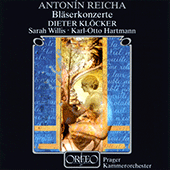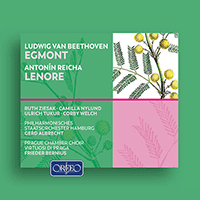
Antoine Reicha (1770 - 1836)
Antoine Reicha, born Antonín Rejcha in Prague, moved in adolescence with his family to Bonn, playing violin and flute under the direction of his uncle in the court orchestra in which Beethoven also served. In 1794 he moved to Hamburg, where he took up teaching and composition instead of performance. In 1799 he tried for operatic success in Paris, but when this failed he moved to Vienna, renewing acquaintance with Beethoven and Haydn. Here he won considerable success, returning to Paris once more in 1808 where he enjoyed esteem as a composer and, above all, as a teacher at the Conservatoire. His pupils included Berlioz, Liszt and, for a short time, César Franck. He was the author of a number of important theoretical treatises.
Stage Works
Reicha wrote operas and Singspiel. These are seldom if ever performed. His operas can, in fact, be only of historical interest, with three of them providing examples for his Art du compositeur dramatique (‘Art of the Dramatic Composer’), a guide to the contemporary technique of dramatic composition.
Orchestral Music
Reicha was as prolific in the composition of orchestral music as in other genres, with a series of symphonies, overtures and concertos.
Chamber Music
It is for his chamber music that Reicha is particularly remembered, notably for his two dozen or so wind quintets which are regularly performed. He wrote for varied combinations of instruments, his works including a series of quartets and quintets for a wind instrument with string quartet.
Piano Music
Much of Reicha’s piano music is primarily of pedagogical interest, as, for example, L’Art de varier (‘The Art of Variation’), written in Vienna for Prince Louis Ferdinand, whom he served as teacher and Kapellmeister.
Vocal and Choral Music
Among many choral and vocal works by Reicha are settings of the Requiem and other liturgical and sacred texts. Secular works include a setting of Bürger’s romantic ballad Lenore.


















